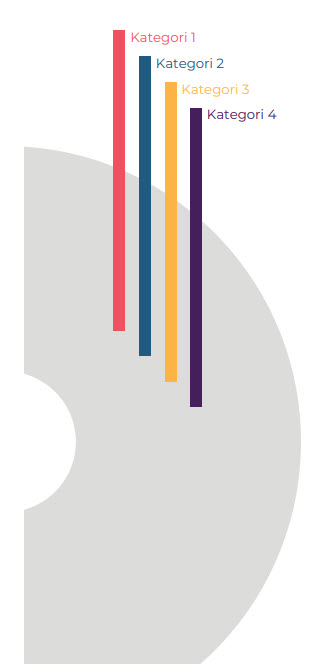Course activity
University College Absalon has structured its courses so that you, as a student, dedicate 41 hours a week to course activities. We ensure that the time you invest aligns with your ECTS credits, taking into account holidays, exam periods, etc.
Activities vary depending on the subjects and topics taught and do not exclusively follow the traditional format of classroom teaching with a teacher at the front.
We use a graphic model to illustrate how a degree programme comprises a variety of course activities.
This model is utilised by university colleges throughout Denmark and clearly illustrates the extent to which four types of course activity contribute to the degree programme. Course activities are grouped into these categories based on their principal characteristics. Each category is distinguished by the differing roles and responsibilities of the teachers and students.
The course activity model serves three purposes:
- To highlight how, taken together, the course activities constitute a full-time programme, i.e. it provides an overview of expected course activities such that you can you plan your time as a full-time student appropriately
- The model emphasises that a professional degree programme includes a variety of course activities.
- The model forms the basis for communication and aligning expectations between you, the student, and your lecturers with regard to study intensity, roles and responsibilities across the different types of course activity
